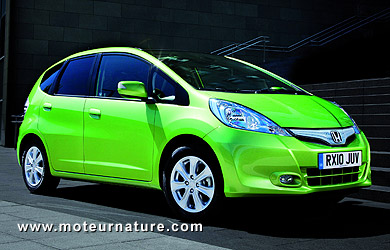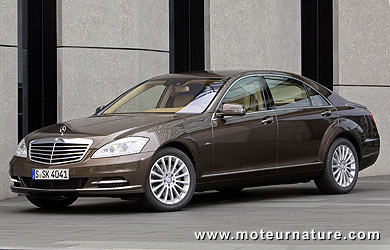 Since 1997, the Öko Trend institute publishes a list of the greenest cars available on the German market. Many others do something similar in every country of the world, but the Öko Trend institute might have the most rigorous methodology. Thousands of factors are taken into account, such as fuel economy and toxic emissions. Those are the most obvious ones, but there’s also manufacturing, logistics, recycling, environmental management, and more subjective matters like the perception of social and environmental responsibility of each car manufacturer. Best cars get the most points, official list is below.
Since 1997, the Öko Trend institute publishes a list of the greenest cars available on the German market. Many others do something similar in every country of the world, but the Öko Trend institute might have the most rigorous methodology. Thousands of factors are taken into account, such as fuel economy and toxic emissions. Those are the most obvious ones, but there’s also manufacturing, logistics, recycling, environmental management, and more subjective matters like the perception of social and environmental responsibility of each car manufacturer. Best cars get the most points, official list is below.
 Very small cars: Smart Fortwo mhd 1.0 (91.1 points), Fiat 500 0.9 TwinAir (90.3), Toyota iQ 1.33 (90.1).
Very small cars: Smart Fortwo mhd 1.0 (91.1 points), Fiat 500 0.9 TwinAir (90.3), Toyota iQ 1.33 (90.1).
Small Cars: Honda Jazz Hybrid (pictured, 93 points), VW Polo Blue Motion (92.8), Mini One D (92.7). (The Jazz sells as the Fit in America)
Compacts: Lexus CT 200h (94.2 points), Toyota Auris Hybrid, (94.2), BMW 116d EfficientDynamics (92.4).
Midsize cars: Toyota Prius (94.6 points), BMW 320d EfficientDynamics (92.3), Opel Ampera (92.2). (The Opel Ampera is the European version of the Chevrolet Volt)
Upper middle class: BMW 520d EfficientDynamics (91.3 points), Passat 1.4 TSI Ecofuel (91.1), Audi A6 2.0 TDT (90.4). (Passat Ecofuel runs on CNG)
Limousines: Mercedes-Benz S 250 CDI Blue Efficiency (pictured, 86.2 points), BMW 730d Blue Dynamics (82.4), Audi A8 3.0 TDI (82.2).
Vans: Volkswagen Sharan 2.0 TDI Blue Motion Technology (86.1 points), Seat Alhambra 2.0 TDI Ecomotive (86), Ford S-Max 1.6 Ecoboost (84.2).
Compact SUVs: BMW EfficientDynamics X1 sDrive 20d (88.4 points), Nissan Qashqai 1.6 dCi (86.2), Skoda Yeti 1.6 TDI Greenline (85.5).
Large SUVs: Mercees-Benz ML 250 Bluetec 4Matric (82.8 points), Lexus RX 450h (82.5), Audi Q5 Hybrid TFSI Quattro (76.2).
Convertibles: Mini Cooper D (91.2 points), Golf Cabrio 1.6 TDI Blue Motion Technology (91.1), Mercedes-Benz SLK 250 CDI (91).
Coupés: Honda CR-Z (90.8 points), Volkswagen Scirocco 1.4 TSI (90.2), Peugeot 165 RCZ HDI DAP (89.5).